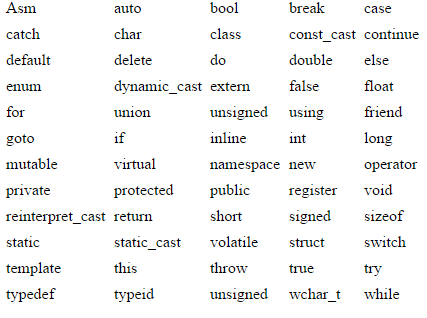C++ identifiers used in a program refer to the name of the programmer's constructed variable, function, array, or other user-defined data types. They are the fundamental necessity of every language, and each language has its own identification rules.
The most significant difference between C and C++ is the variable's longitudinal limit. ANSI C++ only considers the first 32 characters in the name, but the length does not limit the ANSI C++.
The constants are the identifiers that do not change throughout program execution to the fixed value. Both C and C++ offer different literal constants and have any placement for the memory. The literal constants are, for instance, 123, 12.34, 037, 0X2, etc.
Keywords are those words reserved for the compiler which have a particular significance. They are for a purpose dedicated for which identifiers cannot be used. For example, the predefined words for 'for,' 'break,' 'while,' 'if, and others' are those terms with a comment previously known to the compiler. The word for the word is predetermined. Instead, the identification is the names defining variables, functions, arrays, objects, and classes by programmers for the pieces of the program.

|
|